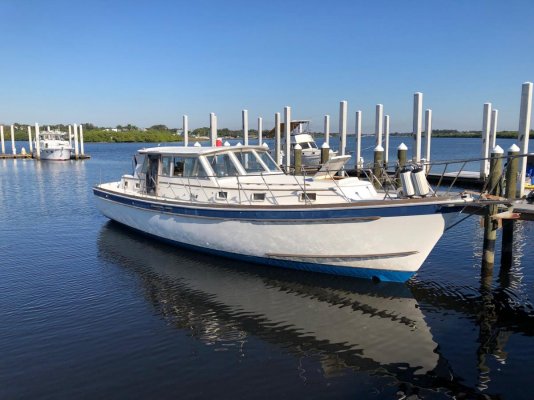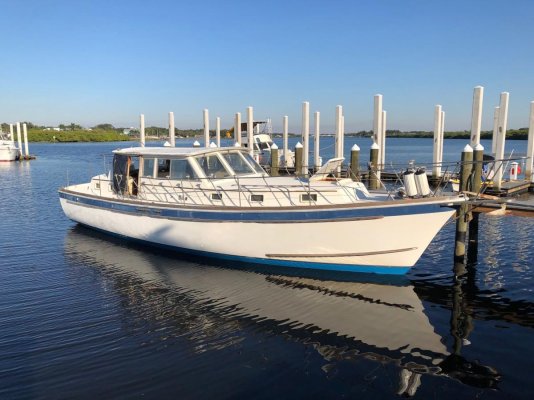Definitely a good consideration!, consumption rate and range are always top of mind but recharge rate is going to be a big factor. I doubt I'll find any level 3 fast chargers! If shore power is typically 120v it could take a while to top off and might run up the daily operational cost significantly.
If you're able to dock at a berth with 50A 125/250v service, you'll be able to do a full Level 2 charge. If you're running a single EV's worth of battery cells, regardless of chemistry, you'll be able to get that charged overnight, probably faster. If you're running more battery than that, then up your time by the same percent more battery you have.
If you're in a berth with 30A, 120v service, your charge time will be significantly longer (think 13+ hours for single car's worth of battery cells.
Like you and the OP, I've been thinking about what it would take to convert an existing trawler to electric for some time. As much as I'd love to dive into a 100% electric build, I don't think the technology or infrastructure is there to build an affordable battery electric propulsion system without compromises I'm unwilling to make, such as committing to 5-7 knot cruising.
What I think will work, and will provide a lot of the benefits of a 100% electric system, is a series hybrid diesel electric. If you run an 80 kWh battery (ie Tesla Model S long range) with a repurposed EV motor (150-300hp), you could have both good cruise range and the ability to motor out of tight situations at higher speeds. But you'd be dead in the water if you needed to use more power more frequently, so I wouldn't be comfortable with that trade off. Hence the addition of a diesel engine, perhaps fitted roughly where and how the factory diesel was, but spinning a genset instead of the prop. That genset would be charging the battery pack and running at max efficiency, since it'd be under consistent loading. Of course, the diesel could be off on slow cruise days, so you're running silently. Plus, dropping anchor with a full battery means you can run air conditioning all night without the thrum of a genset, cook with induction, and even heat with electricity, which means no propane on board either.
Truth be told, none of this is probably going to happen for me...at a certain point, the price/performance ratio of a hybrid or even full EV cruiser will drop to where I'd as soon buy as build something that's never going to be worth what I paid, let alone what I paid plus what I spent on retrofitting.


